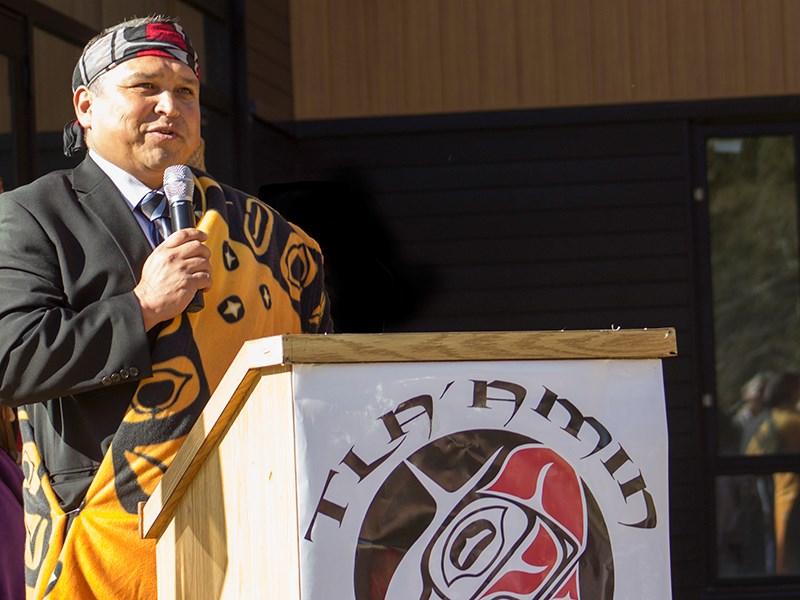In a series of firsts since the Tla’amin Nation treaty came into effect this spring, preparations are moving forward for the nation’s historic September elections.
Tla’amin people will go to the polls to choose their first group of legislators and hegus on September 10. The nomination meeting to bring forward potential candidates is scheduled for Thursday, July 28, at the Salish Centre.
“This is our first election separate from the Indian Act, so in that sense it’s pretty historic,” said current hegus Clint Williams. “It’s quite a busy time for the nation on the whole, as a lot of the self-government implementation work is happening.”
Chief electoral officer Fred Schiffner, who has worked with the first nation for more than a decade on elections, will return to officiate the vote.
Tla’amin economic development committee chair and community development officer Roy Francis said having Schiffner return will bring a recognized feeling to the new proceedings.
“We’re familiar with and trust his work,” said Francis. “It’s good to have that kind of continuity. He did our last election as an Indian Act band and now he’s doing our first one under our new process.”
Election notices have been sent out to all current Tla’amin citizens. Francis said if a person participated in the treaty-ratification vote, he or she is already registered as a Tla’amin citizen. Any person who wishes to register and can meet membership criteria is invited to register to participate in the nomination process and cast a ballot.
The upcoming election will raise the bar for the self-governing nation’s leadership, said Francis.
“The expectations and stakes are a lot higher and there’s a new standard that just wasn’t there before,” said Francis. “The capacity we need in our leaders has grown immensely.”
Francis said elections in the first nation have always generated a lot of interest, but the nation’s new election laws will provide some changes, ones he said he hopes bring out the best candidates.
“The bar has been raised quite a lot in terms of performance expectations for our elected leaders,” said Francis. “It’s much less a free-for-all.”
New laws provide better clarity and more defined roles and responsibilities to bring forward the best-suited candidates, said Francis.
“There are different considerations in play now,” he said.
In 2014, for Tla’amin’s last election, 21 band members put their names forward as candidates for councillor positions. Three vied for chief, including Clint Williams, who became hegus with the treaty implementation.
Williams said that despite rumours circulating in the community, he is planning to run for hegus again in the upcoming election.
Schiffner said he is expecting everything to go smoothly with this first election and that Tla’amin election laws are in line with other BC treaty first nations he has worked with.
“This one for the Tla’amin will be special,” said Schiffner. “Residents will find it a little different though. [Nominations] are all done in writing now.”
Schiffner explained that in past elections for chief and council nominations were all done verbally.
“Of course, everybody was just throwing out names,” he said. “This will be far more organized and efficacious.”
If the nominated person accepts, they have to provide an affidavit that they are qualified, committed to running and will follow Tla’amin’s election laws. Provisions require candidates to provide a deposit, be truthful in their campaigning and vow not to speak against rival candidates, something Schiffner said Elections Canada should consider adopting for future provincial and federal elections.
Terms of office have been extended from two years to four, a move that will allow the local government to accomplish more, he said.
With two-year terms, newly elected councillors spent the first six months learning and the last six months campaigning, said Schiffner.
“You basically have a year to accomplish anything,” he said, “and we all know in government that’s an impossibility.”



